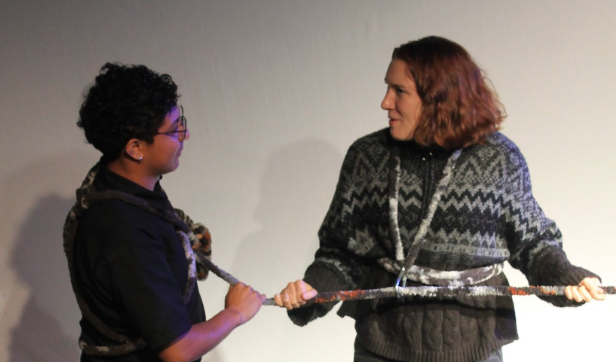Last Sunday, I decided to get out of my comfort zone and read a nonfiction book. Although I prefer the opposite, I wanted to explore something different. I was recommended to read the book Ten Days in a Mad-House by Nellie Bly. In the story, Bly goes undercover as an investigator to discover more about the terrible conditions in an insane asylum for women on Blackwell’s Island. She is admitted for ten days and uncovers the harsh realities that the patients are forced to live with on a daily basis, such as inedible food, few clothes, and cold showers. As if this was not enough, they were treated terribly by nurses, and if patients wanted more than they were given, they were beaten, choked, or strangled.
The book is definitely worth reading. I was fascinated at how well Bly was able to pass the examinations by the doctors needed to get admitted into the asylum. She did not act particularly differently, but the way she remained calm during questioning made the doctors believe she was insane, almost as if she or they could not make sense that she was going to be admitted into an insane asylum. In addition, at the end of the story, readers get some insight into Bly’s life as a white slave, which was historical at the time this took place. And, lastly, I loved Bly’s sketches that she added to the book. They are not much, but it makes the book feel like it is more of a journal.
However, one thing I found a bit off about Bly’s story was how abruptly she ended it. Earlier in the book, she mentioned how difficult it was for a patient to leave the asylum. She even states, “The insane asylum on Blackwell’s Island is a human rat-trap. It is easy to get in, but once there it is impossible to get out.” This goes against her final action, for she left fairly easily. Although, she did have legal help from lawyers, demanding that the institution release her. But, even after this, she does not go in-depth into the legal factors of the situation, simply, they had helped her be released. It would have been interesting had Bly explained more about this.
All in all, Bly was a huge help to the women on the island, for she brought them justice. One million dollars were donated thanks to Bly’s courageousness. Unfortunately, shortly after, the asylum was shut down. Regardless, Bly remains one of the most influential women investigators of the 1800’s.
Even if you are not a big fan of nonfiction, this book may change your mind about the genre, and be a good starting point. If you are interested in journalism, social reforms, and the history of mental health care, this book is worth your time. And, if you are like me, and enjoy short chapters, that is just another reason to read the book!







Jocelyn • Oct 29, 2024 at 6:45 pm
I most definitely will be reading this
Savannah Marin • Nov 6, 2024 at 10:01 am
Perfect
Jocelyn • Oct 29, 2024 at 6:45 pm
She was really ahead of her time
Savannah Marin • Nov 6, 2024 at 10:03 am
#Girlboss